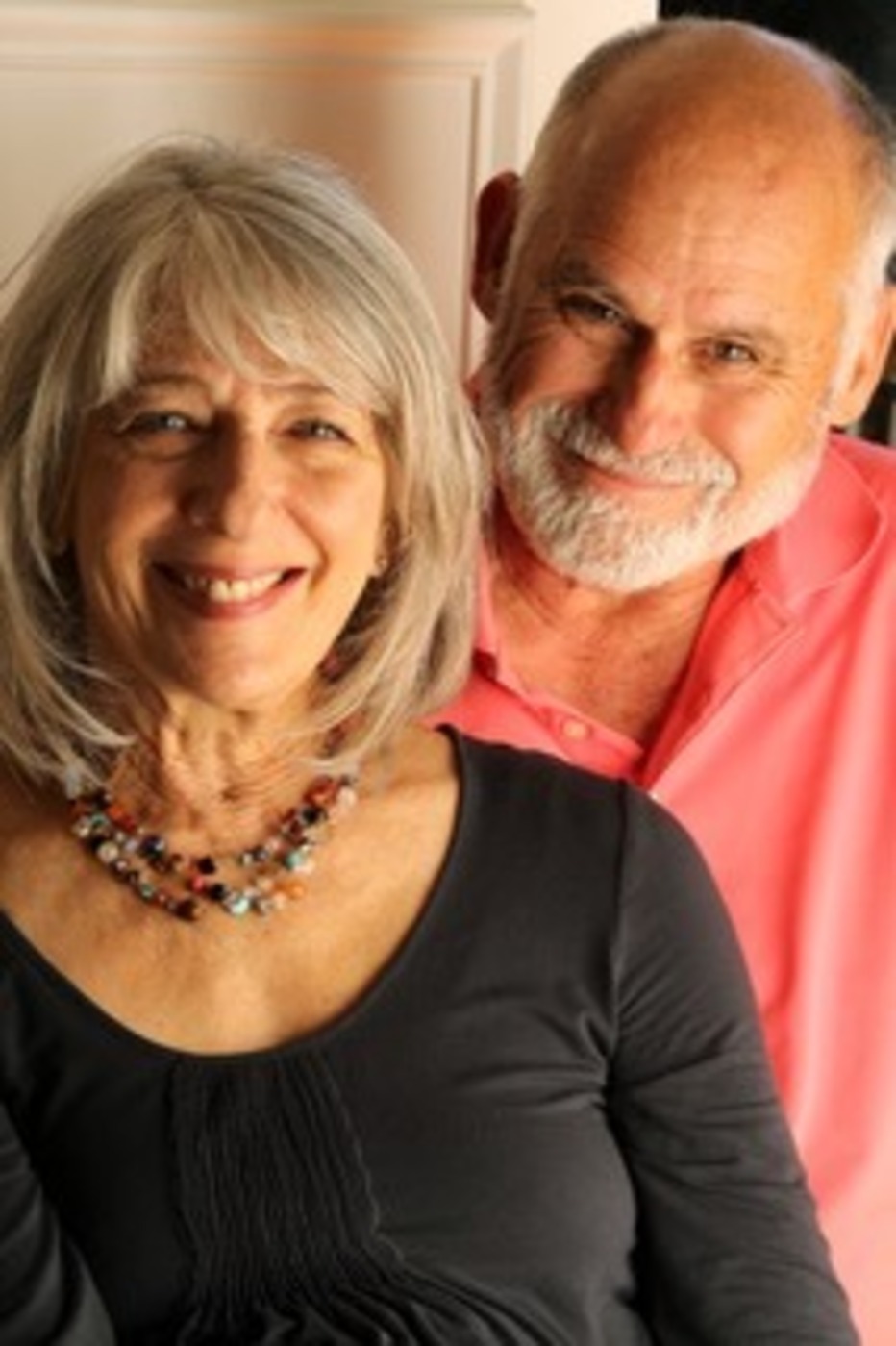What are the ingredients for a disciple-maker? There are 5 key competencies that make up a follower of Chris. Learn what those are and how to grow in them by listening to this week’s podcast.
Note: Below is a transcription of this Walking Our Talk podcast. Please excuse any grammatical or punctuation flaws, as the transcription is a written version of our fluid conversation.
Pauly [00:00:07] Welcome to walking our talk with Alan and Pauly Heller. Join our conversation as we discuss practical ways to apply spiritual principles to your everyday life and help you walk your talk one step at a time.
Alan [00:00:28] Welcome to Walking Our Talk. I’m Alan Heller and I’m with my wife Pauly, and we’re talking about discipleship as well as being a disciple-maker and what it takes. But I want to read it’s a little lengthy, but I think it’s fun.
Alan [00:00:44] A part of the fellowship of the unashamed. I have the Holy Spirit’s power. The dye has been cast. I have stepped over the line. The decision has been made. I’m a disciple of Jesus. I won’t look back, let up, slow down or back away. My past is redeemed. My present makes sense. My future is secure. I’m finished with how living site walking small planning some smooth knees, color of his dreams, lamed vision, mundane talking, cheap giving, and dwarfed goals. I no longer need preeminence, prosperity, position, promotion or popularity. I don’t have to be first. I don’t have to be right. I don’t have to be recognized. I don’t have to be praised, regarded or rewarded. I live by faith. Lean on his presence. Walk by patients. Lift by prayer and labored by power. My face is set. My gait is fast. My goal is heaven. My road is narrow. My way is tough. My companions, few. My God, reliable. My mission is clear. I cannot be bought, compromised, detoured, lured away, turned back, deluded or delayed. I will not flinch in the face of sacrifice. Hesitate in the presence of adversity. Negotiate at the table of the enemy. Ponder at the pool of popularity. Or meander in the maze of mediocrity. I won’t give up. Shut up. Let up until I’ve stayed up. Stored up. Prayed up. Paid up. Preached. I’m a disciple of Jesus. I must go until He comes, give till I drop. Preach till all I know. And work till he stops me. And when he comes for his own he won’t have any problem recognizing me. My banner will be clear and I would say the banner over me is love.
Alan [00:03:10] So that’s an oldie but goodie. And I think it just talks about the commitment that we need to make to Christ.
Pauly [00:03:17] Right. Right. Well, it’s kind of like, you know, when you say the banner. It makes me think of your team colors. You know what? I get so upset when some athlete has played on a certain team for a number of years.
Alan [00:03:32] Or a year or two now.
Pauly [00:03:34] Yeah. I know it used to be they’d play.
Alan [00:03:35] There is no loyalty, it’s all about the money.
Pauly [00:03:38] Yeah and then they get traded. And the next thing you know, instead of wearing blue and gold, they’re wearing green and white.
Alan [00:03:44] Right. And the coach also gets fired and he plays for a different team and the team that he played against. He has players that used to play on that team. So it’s a real mess.
 Pauly [00:03:55] So you change your colors and you change your banner. You change your loyalties. But in Christ, that’s not to be. I mean, that’s exactly what you’re just reading. Your banner stays the same. Your commitment stays the same throughout your entire life. You’re on the same team. You’re on his team, and you keep learning more and more about how he wants you to live, how he wants you to walk it out, how he wants you to deal with every situation. And for me, it’s about giving up more of myself, more of my ways, so that his ways and his desires for me become increasingly evident as it’s lived out through me.
Pauly [00:03:55] So you change your colors and you change your banner. You change your loyalties. But in Christ, that’s not to be. I mean, that’s exactly what you’re just reading. Your banner stays the same. Your commitment stays the same throughout your entire life. You’re on the same team. You’re on his team, and you keep learning more and more about how he wants you to live, how he wants you to walk it out, how he wants you to deal with every situation. And for me, it’s about giving up more of myself, more of my ways, so that his ways and his desires for me become increasingly evident as it’s lived out through me.
Alan [00:04:44] I just want to remind you where Alan and Pauly Heller and we live in Phenix, Arizona, and we have a ministry called Walk and Talk. And if you want to get in touch with us, you can get me by email: alan@walkandtalk.org. So if you have any questions, feel free to email us or go to our Web site: walkandtalk.org
Pauly [00:05:19] So when we talk about walking your talk, that’s what we’re talking about is discipleship.
Alan [00:05:25] And we’re going to concentrate on we’ve talked about in the past few podcasts, feel free to go back and listen to them. But we’ve talked about discipleship. What we want to talk about, what are the ingredients for a disciple-maker and the navigators? I read an article in their Web site and they talk about five marks of a disciple-maker. And I won’t go in-depth in these, but I think they’re good. Five marks of a disciple-maker of five key competencies for a follower of Christ to invest in discipleship. These competencies include: A passion to know Christ, knowledge of the scriptures, a desire for community and a heart for the lost, and the ability to create spiritual generations.
Alan [00:06:17] So what I hear in there Pauly is, first of all, there are competencies for a follower of Christ to invest in a person. So I’ve grown to the point I am a disciple-maker when I take what I’ve learned and helped another do it. And I think in America or the western side of things, we tend to try and do perfectness. And the disciples, many people were called disciples in Jesus Day that were only a day old in the ward. And I remember when I came to know the Lord, I told this story in past podcasts. I was taught by the person who led me to the Lord to lead others to the Lord. And what I didn’t know was I was the first person he led to the Lord. But it was enough to motivate me to go to my best friend and say, Guess what? I asked Jesus into my life. I’d like you to know one, too. And then I realized I didn’t know how to do that.
Alan [00:07:20] So I went back to my competent guy who is only one person further along than me. And so my share with him and actually run just rededicated his life to the Lord. But after that, there were people that were coming to know him and I didn’t know the term witnessing, but somebody said, oh yeah, that’s witnessing. And you’re telling me how to do it. And I said, I don’t know what you’re talking about, but three people ask Jesus in their life today and that it was just because I was so excited. And even though I didn’t have, like, this really bad lifestyle or anything, but I just was full of him and it was a very different experience.
Alan [00:08:05] So five keys, one of them is competency. The other is knowledge of the scripture. I don’t think you can be a disciple-maker if you don’t know Jesus and you don’t know his word because he says all scripture is inspired by God, profitable for teaching, reproved, correction and training in righteousness, in right living. And then the next one was a desire for community. Christian life cannot be done – Disciple-making and being a disciple – can’t be done alone. And I think many people in the church are isolated and don’t have friends.
Alan [00:08:42] And almost every time when somebody comes into my office, I say, Do you have one person that you can confide in and pray with? And, you know, can we call you up if they don’t hear from you? And they always say no. And I just can’t believe that because, again, part of our Christian experience, maybe because we come from Jewish backgrounds and community, was a very big part of our own life, all our life, a very tight-knit family and very close relatives and people were there for us in community. So I didn’t understand. When I first came to know, Lord, why people wouldn’t have community.
Alan [00:09:21] And then a heart for the lost, the ability to identify with people who don’t know the Lord and go after them and the ability to create spiritual generations. That’s second Timothy 2:2, which says teach faithful men who will teach others also. And so at this time in my life that’s been sort of my banner cry and trying to think of myself, that it’s not just sharing my faith with somebody, it’s sharing my faith and my life to the point that they want to share their faith and life with others also.
Pauly [00:09:56] Yeah, it has to be transferred to the next generation and encouraging that generation to transfer it to the generation after them. And if we’re not doing that, then we are really failing in our mission. I might be able to recite endless psalms and scriptures by rote because I have them memorized. But if I haven’t applied the meaning of that word to my life. I’m not doing what it’s meant to do in my life in terms of purifying me and guiding me in the way that I live.
Pauly [00:10:42] And at the same time, if I’m not passing along that truth to somebody else, I’m failing to carry out the wishes of the person who I say is my Lord. And as my Lord, that doesn’t just mean that he’s God. That means that he is my master. He’s the one who is giving me direction. He’s the one who is giving me directives and telling me this is what I want you to do. This is how I want you to live. And I’m not carrying out his wishes, if I’m not telling somebody else about him and leading others to him and helping them to walk it out in their own lives.
Alan [00:11:28] Well, First Corinthians says in terms of love is when I was a child, I reasoned like a child. Then when I became a man, I put away childish things behind me. For now, we see, in reflection, a mirror. Then we’ll see face to face. Now I know in part. Then I will know fully. And it says, Faith, hope, love. These three the greatest is love. But he says if you’re not, you could give your body to be burned. And if you don’t have love, you’re a noisy gong or a clanging Sarah.
Pauly [00:12:02] Right.
Alan [00:12:03] So the bottom line is love. But how does love get worked out? And so we’d like to talk about some practical things in terms of how that works out in a relationship with a disciple-maker. How do I become a disciple-maker? My definition is one who comes alongside a person to help them become an obedient disciple through an environment of love and grace and accountability.
Alan [00:12:32] So for me, an environment of love means that I am accepted. He says we are accepted in the beloved, in Ephesians. And so I need the people that helped me the most. As disciple-makers, when they were disciples in me, sort of me, I remember Joab gave me this assignment. He was one of the first people besides the guy who led me to the Lord who just said, get in the book at John and read it. And so within an hour, I read the book of John and he told me, if you have any questions, come up and see me. So I came right up and said, I got some questions about this. So that was part of my discipline.
Alan [00:13:15] But then Joe, around the second year of working with me, gave me an assignment where this, there was this pro football player that was going to give a great talk at the end of the week. And I was in charge of PR public relations for this thing. I am so bad at PR and I tried to tell Joe that, but he didn’t believe me.
Alan [00:13:41] So I think he was thinking, I’m gonna give this guy kid a responsibility so that maybe he’ll do it and maybe he won’t. And I, I did it, but I was a miserable failure. I put up little tents on all the tables in the beverage center and I passed out fliers and everything, but nothing happened. And I just came like a whipped puppy with my tail between my legs come into Joe to meet him at the beverage center, which was the gathering place. And I just said, Joe, man, I just blew it. I just this is not I don’t do a good job at this. I mean, I don’t remember exactly what he said, but basically he said, hey, those things happen. We’ll work it out and let’s keep going. But that acceptance was on a level that touched me greatly because I was used to: if you don’t pass and do it right, you’re a failure. You’re wrong. And then I get beat up for it emotionally, both myself and from.
Pauly [00:14:42] Well, here’s the thing. You’re talking about love and grace and acceptance that because Joe accepted you, he gave you the freedom to fail. But then you’ve also got accountability, love and grace and accountability. So how does accountability work along with grace? Like if you’re giving somebody the freedom to fail and the freedom to not do things right. How do you hold them accountable? What kinds of things do you hold them accountable for?
Alan [00:15:22] Right. I mean, it could be as simple as giving them a reading assignment. You need to read the first chapter of John or I, even this week, I had a couple of guys that I am working with on discipling and I said I just asked, did you read the chapter for the week? And after some fumbling around when I said, well, I’ve been working on the house I mean, you know, no. So I said, well, let’s just read it as we go. So this time I’ll read it. But then after we are done with the lesson and I’ll say next week, I expect you to have the lesson done that that’s our commitment to grow and to be.
Alan [00:16:05] And I think there’s just like Jesus did with Peter. He called Peter. He was a little pebble. But then he became he was Petra and then Petrus. And he was on this church on the testimony of what Peter said. He built his church. And so he had a vision for who Peter was. And every time I was taught early in my discipling experience, every time you see somebody who you’re working with and you choose them and they say they’re going to work with you, then have a vision for the future of who they can be, not who they are. And so part of that is letting them mess up without getting angry and saying, I’m done with you and caring enough to help them actually out of it. There are people that can’t do something and there are people that don’t want to do it.
Alan [00:17:02] And the only way you find that out is by actually doing things with them, which is why you can’t to discipleship on the computer. You can get knowledge and information from a podcast or a video or a sermon. And those are wonderful things. But discipleship doesn’t happen in a vacuum of just knowledge, growing grace and knowledge of the truth. And some of that’s intellectual. In the Hebrew, the whole idea of keeping obedience is doing it and not just talking about it. And so at some point in your discipleship, you have to be involved with somebody in their life.
Alan [00:17:46] When I go to I, I’ll say, can I come to your work? And a guy will go, why do you want to come to my work? And I won’t always tell them exactly why, but I’ll just say I just want to see what you do. You spend eight hours doing this stuff. You tell me about it. But I can’t figure out what you do. So would it be OK? In some places, they don’t let you in. Most 80 percent of the workplaces, they’ll just let you follow somebody around as long as you don’t get in the way. And so I learn a lot about how he deals with people, how he looks at himself, how he does his work if he’s afraid to even have me come to work or have me come to his home. I mean, you can learn a lot about somebody by just going in the front door and sitting down and have a cup of coffee. Just look at the walls. Look at how I mean, I got into one guy’s car the other day and man, the thing was overflowing with all kinds of litter. It helped me. It looked like, who’s the guy on Sesame Street?
 Pauly [00:18:45] Oh, uh, Oscar?
Pauly [00:18:45] Oh, uh, Oscar?
Alan [00:18:52] And what I did, because I don’t want to mess up my trust with the relationship. I didn’t say a word. I just moved things. I mean, I thought I was missing until I went into here. But, I mean, there’s things on the floor, things on the seat. And I just moved them and just we kept talking. So those are practical ways that you overlook, but you circle around. I also and getting together with this guy not to talk about the messiness, because I think that’s just a symptom of a busy mind that is going on to the next thing. And so we have other things that we’re doing.
Pauly [00:19:30] But if messiness is an issue in his life and is creating problems in his life.
Alan [00:19:36] We can work on that.
Pauly [00:19:37] It’s a symptom of a certain amount of disorder in his life. And you’re giving him assignments. Look, I want you to work on this. Then you need to you’re holding me accountable.
Alan [00:19:50] Holding him accountable means you say, how is it going with or what can I do to help you or who can I get to help you?
Pauly [00:19:56] Right.
Alan [00:19:57] One of the things about being a discipler is you don’t have to do it all. Many times, I’ll call a friend and say I have not gone through the drug addiction and alcoholism this person has. But you have and you’ve beat it. Could you meet with him for coffee? And some of those times are great. And I learned more about the guy that I referred him to. If I’m in on the meeting, all of a sudden I get a whole different picture because he’s talking about how Jesus transformed his life. So circling back. Asking questions of your disciple is very key.
Alan [00:20:30] And this time has gone so fast. We’re going to do one more session or two on being a disciple-maker. Keeping people accountable. Working with them in an environment of love and grace and accountability, which means you’re loving them. You’re doing what they need, not what they want. I hope you’re walking your talk and we’ll see you next time.
Pauly [00:20:57] This has been walking our talk with Alan and Pauly Heller, where we put into action those principles. We know from God’s word one step at a time. You can find more help on our website: walkandtalk.org.

